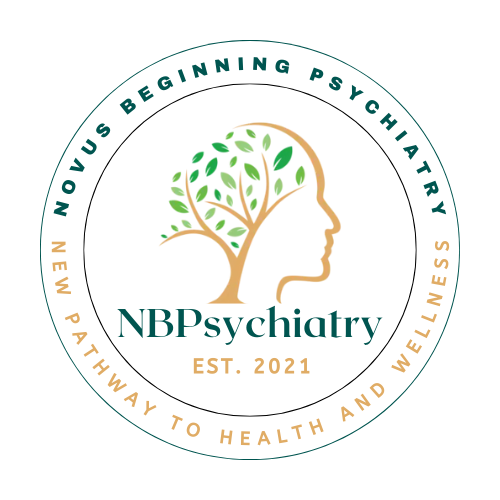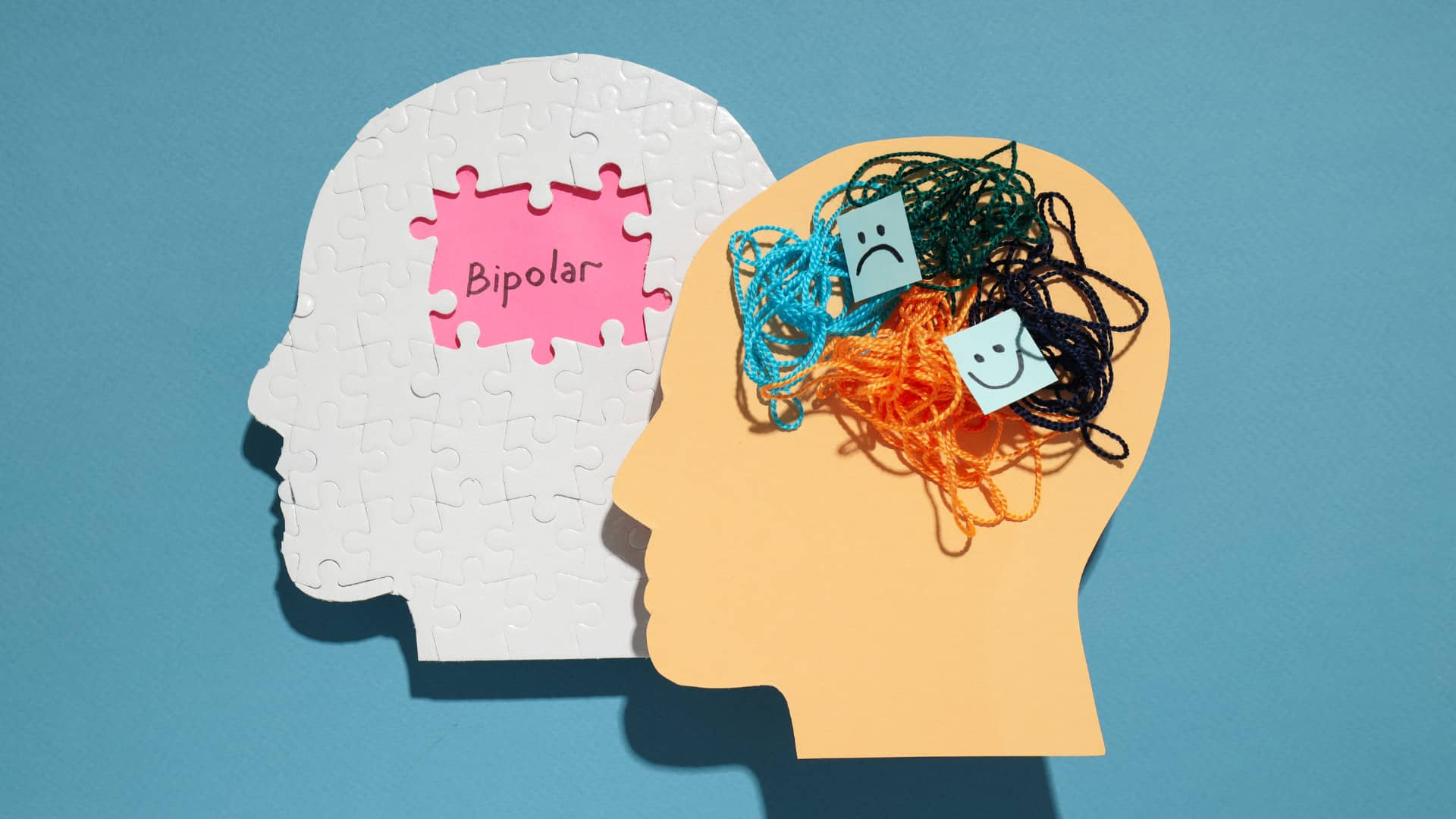Bipolar Disorder
Formerly known as manic depression, bipolar disorder is a chronic mood disorder that causes intense shifts in mood, energy, activity levels, concentration, and behavior. Individuals with certain types of bipolar disorder experience high emotional states that can last for days, weeks, or even years. These mood changes occur in distinct episodes known as manic/hypomanic episodes or depressive episodes.
While everyone experiences mood swings from time to time, they typically last only a few hours and do not involve significant behavioral changes or disruptions in daily functioning. In contrast, bipolar mood episodes can greatly affect a person’s ability to manage their routine, maintain relationships, and navigate social interactions.
Manic Episodes
Mania is a state in which a person experiences dramatic changes in emotions, thoughts, energy, talkativeness, and activity level. They also experience a period of excessive irritability. Others will note the shift in your regular conduct and the high level of energy in your physical and mental activity. Mania being severe and intense and lasting at least 7 days or more.
Hypomanic Episode
A hypomanic episode is characterized by less intense manic symptoms that just need to last for four days straight, as opposed to a week.
Three or more of the following symptoms are present in both manic and hypomanic episodes:
- Mood swings that are abrupt and intense,
- Excessive joy, hopefulness, and excitement
- Delusions and hallucinations
- Decreased need for sleep
- Activities that cause harm (physical, social, or financial)
- Increased or faster speech
- Uncontrollable racing thoughts
- Distractibility
- Increased activity
- Increased risky behavior
- Unusual talkativeness
- Poor decision-making
Depressive Episode
A major depressive episode lasts at least two weeks and is characterized by persistent fatigue, a low or sad mood, and/or loss of interest in most activities and has at least five of the following symptoms
- Intense sadness or despair
- Loss of interest in activities the person once enjoyed
- Feelings of worthlessness or guilt
- Fatigue
- Increased or decreased sleep
- Increased or decreased appetite
- Restlessness
- Difficulty paying attention
- Recurring suicidal thoughts
What are the types of bipolar disorder?
Bipolar I disorder
People who have bipolar I disorder will go through one or more manic episodes. Most people with bipolar I will have both mania and depression, but an episode of depression isn’t necessary for a diagnosis. If there are depressive episodes, they will typically last for two weeks or longer.
Bipolar II disorder
Depressive and hypomanic episodes are common in people with bipolar II disorder. A person must experience at least one major depressive episode and one hypomanic episode in order to be diagnosed with bipolar II disorder. However, they never go through a full manic episode, which is a sign of bipolar I disorder. Bipolar II disorder is frequently more incapacitating than bipolar I disorder because chronic depression is more frequent in bipolar II. When there are no new episodes, people resume their regular activities.
Cyclothymic disorder (cyclothymia)
Cyclothymic disorder is characterized by a persistently unstable mood. They go through mild sadness and hypomania for at least two years. People with cyclothymia may have brief periods of everyday mood (euthymia), but these periods last fewer than eight weeks. People with cyclothymia experience emotional ups and downs but with less severe symptoms than bipolar I or II disorder.
Other specified and unspecified bipolar
Sometimes a person might experience symptoms of bipolar disorder that do not fall into the three categories listed above, and this is referred to as “other specified and unspecified bipolar.”
Bipolar Disorder Treatment
Treatment for bipolar disorder typically involves a combination of psychotherapy, medication, and supportive strategies that help individuals manage mood episodes and maintain long-term stability. Psychotherapy is a core component, with talk therapy offering a space to explore emotions, understand triggers, and build coping skills. Cognitive Behavioral Therapy (CBT) is especially effective, as it helps individuals recognize unhelpful thought patterns and develop healthier responses to stress and mood changes.
Medications play a crucial role in managing bipolar disorder. Mood stabilizers are commonly prescribed to control manic and depressive episodes, while antipsychotic medications may be used when symptoms such as severe agitation, hallucinations, or rapid mood fluctuations occur. These medications help regulate mood and reduce the intensity and frequency of episodes.
Other therapeutic options may also be beneficial. Electroconvulsive therapy (ECT) is sometimes recommended for severe or treatment-resistant cases, particularly when rapid improvement is necessary. Transcranial magnetic stimulation (TMS) provides a non-invasive alternative that can help improve depressive symptoms when other treatments have not been effective.
Lifestyle habits significantly influence treatment success. Regular exercise, yoga, and meditation can help stabilize mood, reduce stress, and support overall emotional balance. Self-management strategies, such as educating oneself about bipolar disorder and learning to identify early symptoms of mood shifts, empower individuals to take proactive steps and seek support before episodes worsen.




